
Definition Of Values In Psychology
Some common values include honesty, integrity, compassion, and respect. Standards, on the other hand, are the expectations and requirements that we set for ourselves and others. They are the rules and guidelines that we use to measure our behavior and performance.
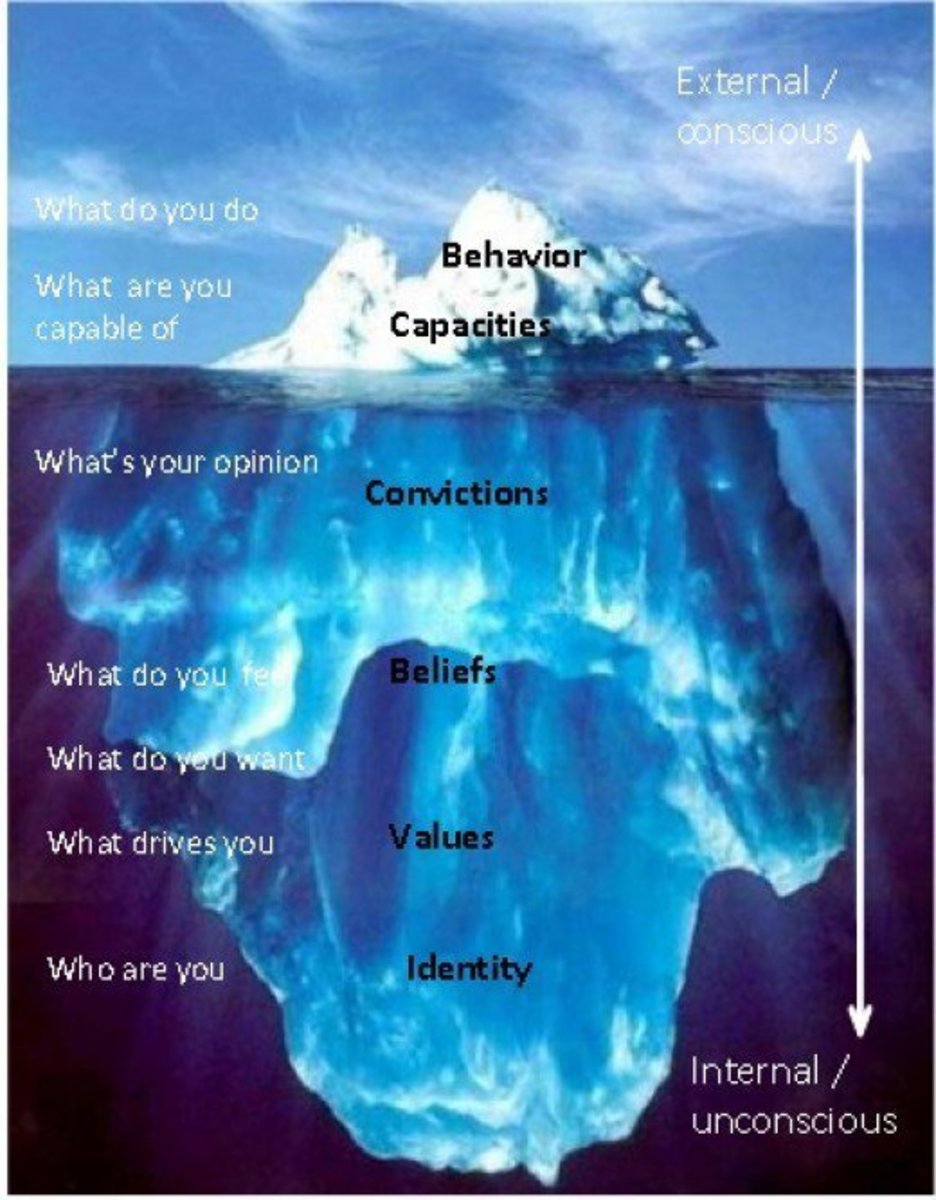
The Relationship Between Beliefs, Values, Attitudes and Behaviours Owlcation
blish what distinction we can make between these three overlapping terms, beliefs, attitudes and values. Beliefs A belief is the acceptance, as true, of facts, statements or sets cir cumstances. It is a firmly held conviction, strong enough to affect attitudes and values, because a belief represents, in one's own view,

Beliefs,values and attitudes
Attitudes are specific judgments toward an object, while values are abstract and trans-situational; attitudes can be positive and negative, while values are mainly positive; and attitudes are less relevant for one's self-concept than values. A range of studies have investigated how values and attitudes toward specific topics are associated.
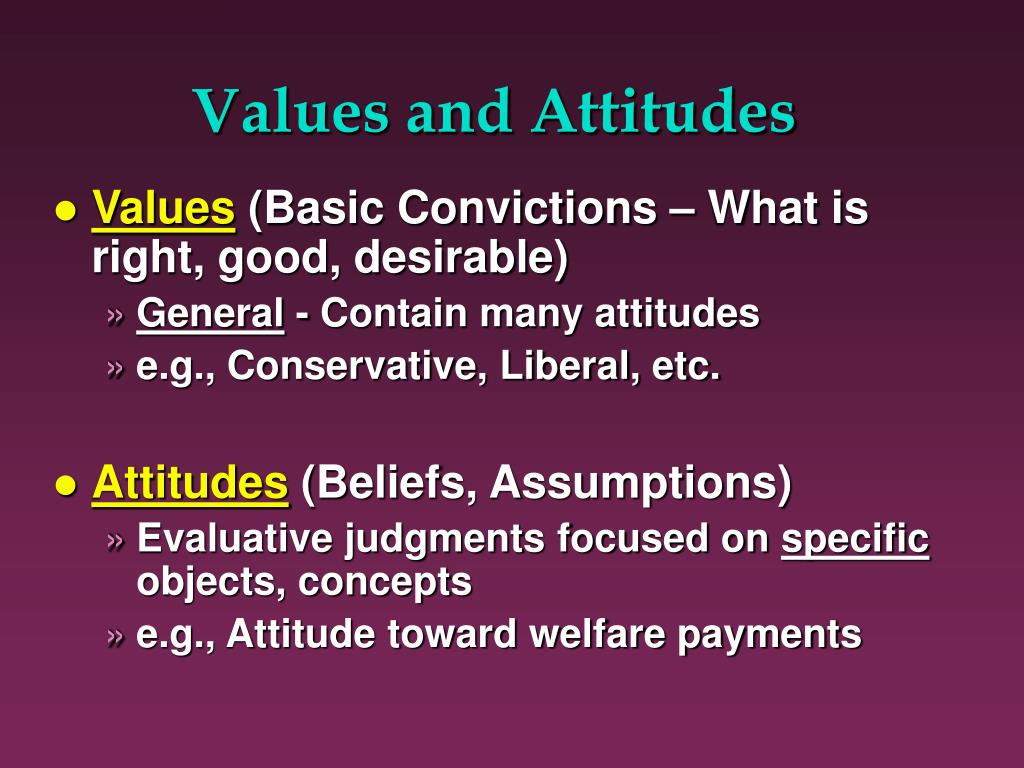
PPT Individual Differences Mental Functioning, Emotional Intelligence, Personality Perception
In psychology, an attitude refers to a set of emotions, beliefs, and behaviors toward a particular object, person, thing, or event. Attitudes are often the result of experience or upbringing. They can have a powerful influence over behavior and affect how people act in various situations. While attitudes are enduring, they can also change.

What is the Difference Between Values and Attitudes Psychology notes, Writing
Attitudes based on direct experience are more strongly held and influence behavior more than attitudes formed indirectly (for example, through hearsay, reading, or watching television). Principle of Consistency. One of the underlying assumptions about the link between attitudes and behavior is that of consistency.

Psychology Personal beliefs, values, attitudes and behaviour (With images) Beliefs, Personal
What are the differences among values, attitudes and ethics? Values are based on principles about how a situation or relationship between things ought to be.
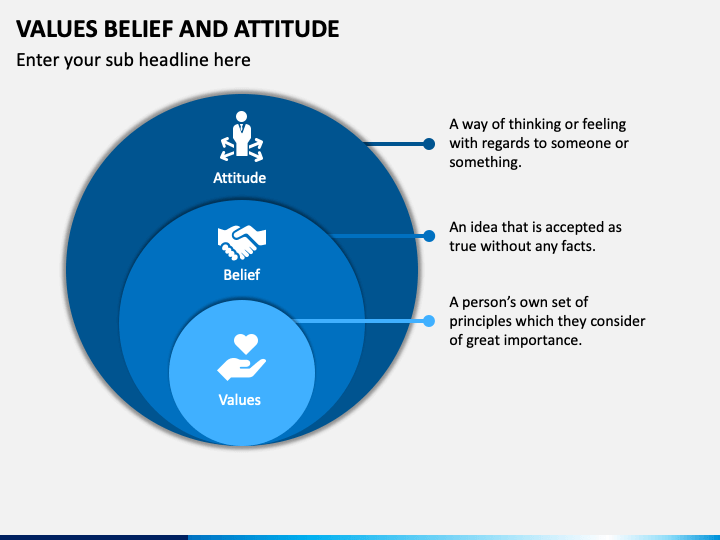
Values Belief and Attitude PowerPoint Template PPT Slides
Rokeach was not the first psychologist to compare values and attitudes, and there are many studies on the interrelations, commonalities, and differences between attitudes and values. For instance, attitudes are specific judgments focused on an object, whereas values are abstract and trans-situational, as Schwartz would put it.

Illustration of the interrelated themes organized according to parent... Download Scientific
These are; Similarities between Values and Attitudes Values and attitudes are two important variables influencing the cognitive process and behavior. They are learned and acquired essentially from the same sources. They endure and are resistant to change. They have a reciprocal influence and are used interchangeably.
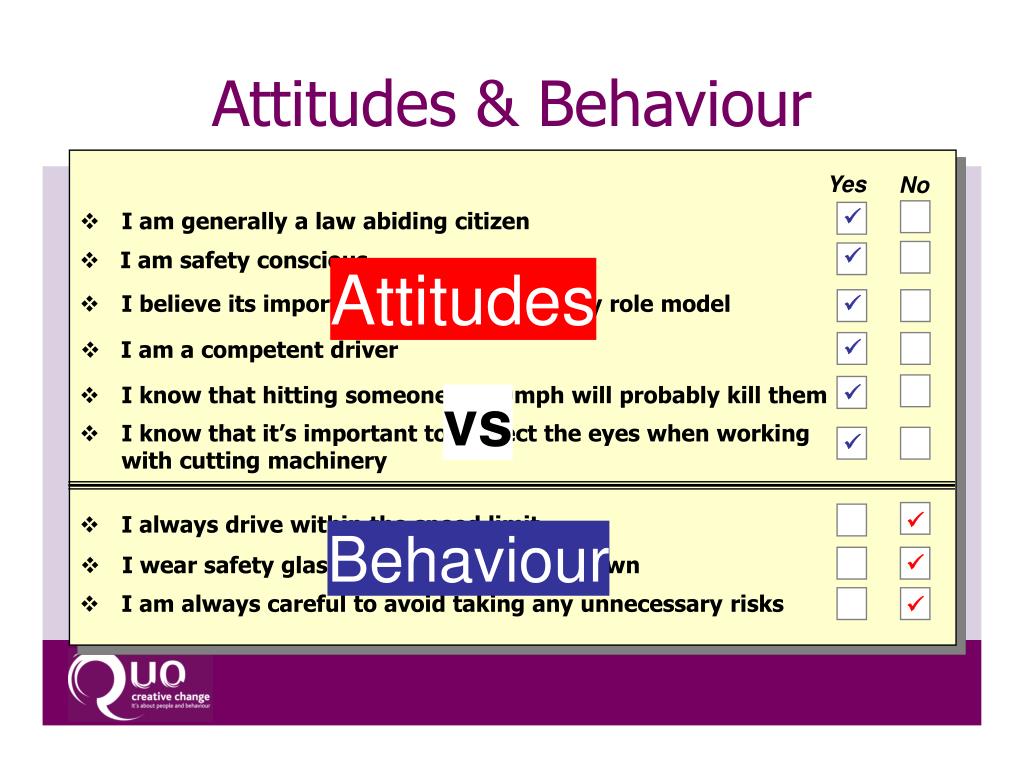
PPT Managing Behaviour Makes A Difference PowerPoint Presentation, free download ID1184524
People's values, beliefs and attitudes are formed and bonded over time through the influences of family, friends, society and life experiences. So, by the time you're an adult, you can hold very definite views on just about everything with a sense of "no one is going to change my mind". The combination of your personal values, beliefs.

Difference between Values and Attitudes (Explained)
A value can be defined as "an enduring belief upon which a person acts." Values are similar to attitudes and beliefs in that they have cognitive, emotional, and behavioral parts. But.
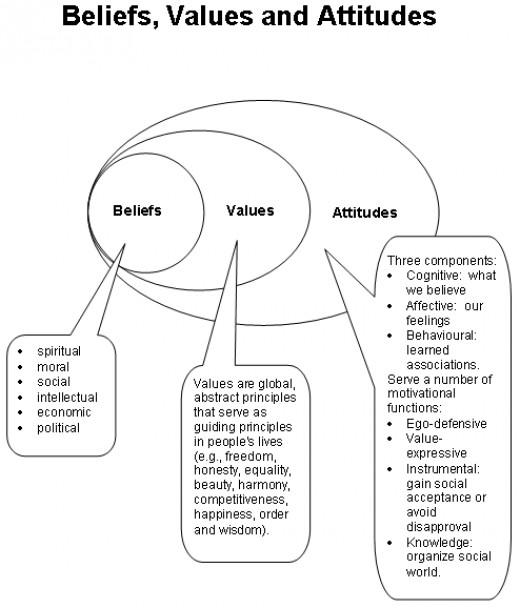
The Basics of Organisational Behaviour Cooler Insights
The difference between values and attitudes is that values are deeply held beliefs about what is important, desirable, and morally right or wrong, while attitudes are more flexible and can change based on experiences and circumstances, influencing a person's behavior and opinions. Find out the difference here.
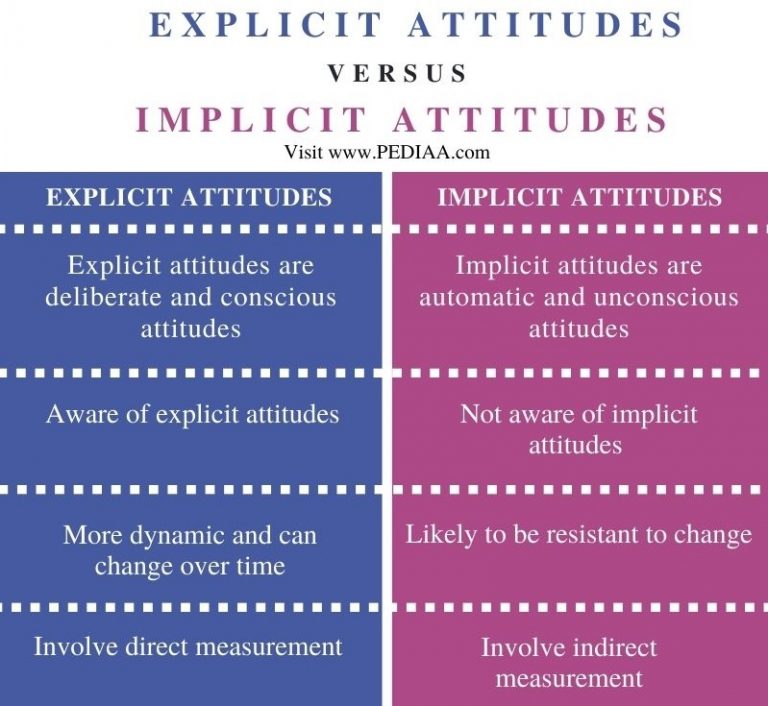
What is the Difference Between Explicit and Implicit Attitudes
What Are Beliefs, Values and Attitudes? In our various roles, our beliefs, values and attitudes are constantly interacting with those of our peers, friends, family or teachers. We seem to instinctively 'like' the individuals who share our core values and beliefs.

Explain the Difference Between Beliefs Attitudes and Values
What differentiates attitudes from opinions or beliefs, and values from representations, ideology, or habits? Campbell's (1963) critical review distinguished 75 constructs that are associated with the catch-all descriptor of an "acquired behavioral disposition".

Attitude content, structure, function ClearIAS
Essay Questions Chapter OverviewAn attitude is a hypothetical construct representing an evaluation of some object, with cognitive (beliefs), affective and behavioural components. It may be explicit or implicit, outside immediate awareness. An ideology is a relatively coherent set of attitudes, usually a political world view.
:max_bytes(150000):strip_icc()/attitudes-how-they-form-change-shape-behavior-2795897-01-110d1b20b934495fad6fcb84d9df7ad4.png)
Attitudes and Behavior in Psychology
Attitudes are specific judgements towards an object, values are abstract and trans-situational; attitudes can be positive and negative, values are mainly positive; and attitudes are less.
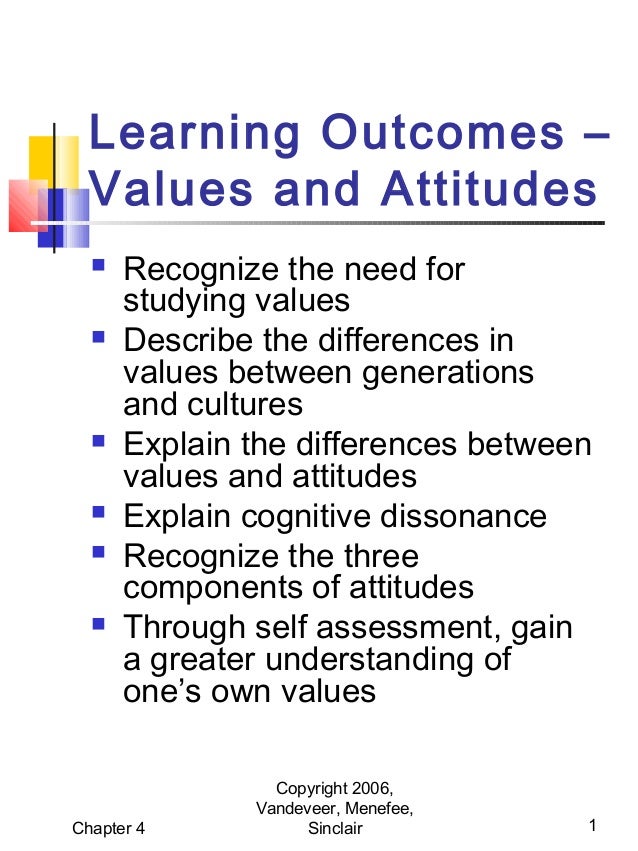
Values attitude
The main difference between values and attitudes is that values are built upon one's moral attributes while attitudes are the standpoints one has regarding various issues. Nevertheless, attitudes build up in accordance with one's values. Values and attitudes are major components in a person's character and personality.